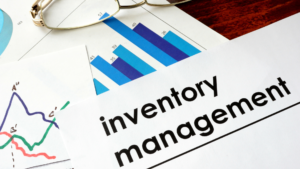In today’s rapidly evolving healthcare landscape, effective management of pharmaceutical inventories is crucial for ensuring optimal patient care and operational efficiency. A Medical Store Management System (MSMS) serves as a vital tool in this endeavor, streamlining the processes involved in inventory control within medical facilities. By integrating advanced technology, these systems address challenges such as overstocking, stockouts, and expiration management.
This article delves into the key features and benefits of a Medical Store Management System, illustrating how it enhances inventory control in healthcare settings and ultimately contributes to better healthcare outcomes.
Key Takeaways
- A Medical Store Management System is essential software that efficiently manages pharmacy operations. It keeps track of inventory, handles sales, and processes prescriptions.
- This system enhances inventory control by utilizing features like expiry date monitoring, automated stock reordering, and centralized data storage. These elements work together to prevent medicine shortages and overstocking while ensuring medications are up-to-date.
- Automation in healthcare inventory management significantly reduces manual errors and saves time, allowing healthcare staff to concentrate more on patient care rather than administrative tasks.
- Implementing a Medical Store Management System leads to improved operational efficiency within healthcare facilities. It streamlines processes by minimizing manual workloads and making workflows faster.
- The system contributes to reducing wastage of medicines by keeping accurate tabs on stock levels and expiration dates, which helps in making better supply chain decisions and saving costs.
What Is a Medical Store Management System?

The most asked question in terms of making healthcare efficient is about the use of an accurate and helpful inventory system. What is medical store management system and how can it help providers and patients alike?
A medical store management system is specialized software designed to streamline pharmacy and healthcare store operations. It effectively manages inventory, sales, and prescriptions, ensuring timely availability of medicines while controlling stock levels to prevent overstocking or shortages. This system plays a vital role in modern healthcare by automating reorder processes, tracking medicine expiry dates, and centralizing data storage for easy access across multiple platforms.
Key Features of a Medical Store Management System
A Medical Store Management System streamlines inventory tracking and management, enabling healthcare providers to monitor stock levels in real-time. Staff can easily view current medication supplies, with automated alerts notifying them when restocking is necessary—essential for maintaining optimal inventory levels.
Expiry date monitoring is vital for effective inventory management, as the system tracks the shelf life of products, significantly reducing waste. This feature alerts staff to medications nearing expiration, ensuring proper disposal and timely replacement, thus enhancing operational efficiency and ensuring patient safety. Another critical feature is automated stock reordering, which places orders automatically when inventory drops below a predefined threshold.
This automation minimizes human error and allows healthcare providers to focus on patient care instead of inventory management. Centralized data storage and backup are also essential, providing easy access to patient records, medication details, and inventory levels. Cloud-based systems offer reliable backup solutions to prevent data loss, which supports efficient appointment scheduling and reduces the likelihood of mistakes.
Benefits of Implementing a Medical Store Management System

A Medical Store Management System significantly enhances inventory control by tracking stock levels in real-time, preventing shortages and overstock situations. Staff can easily view available items, aiding in planning and decision-making. Expiry date monitoring reduces medicine waste by alerting staff to soon-to-expire products, while automated stock reordering ensures necessary items are always on hand.
Centralized data storage provides easy access to information, promoting smooth operations within healthcare settings and improving overall efficiency in patient management systems. By reducing medicine wastage, this system optimizes operational efficiency. It minimizes manual tasks and accelerates workflows, allowing staff to focus on patient care rather than inventory management.
Timely notifications for low inventory levels ensure that supplies are maintained at optimal levels, while centralized data storage allows quick access to essential medication information. Improved tracking reduces prescription errors, enhancing the experience for both patients and doctors. Overall, these features foster a more efficient environment in medical facilities, contributing to enhanced care through integrated systems like hospital appointment management.
The Role of Automation in Modern Healthcare Inventory
Automation is essential in modern healthcare inventory management, streamlining processes, reducing errors, and saving time. Automated systems enable healthcare providers to efficiently track medication stock levels, receiving alerts for low supplies and expiration dates, which helps prevent wastage and ensures essential items are always available.
Automated stock reordering simplifies purchasing by placing orders with suppliers when items fall below a predetermined threshold, allowing staff to concentrate on patient care rather than manual inventory checks. Centralized data storage further enhances efficiency by providing easy access to critical information from various locations.
Overall, automation empowers medical store management systems to operate more effectively in an ever-changing landscape, where precision is vital for patient monitoring and scheduling tasks, such as doctor appointments.
Conclusion
In conclusion, a Medical Store Management System is a vital tool for healthcare facilities, enhancing inventory control and operational efficiency. By automating stock tracking and providing timely alerts for low supplies and expiring medications, this system significantly reduces waste and ensures that essential medical supplies are always available.
Ultimately, adopting this technology allows healthcare professionals to focus more on patient care, leading to improved service delivery and better health outcomes. Embracing such innovations is crucial for modern healthcare management, ensuring that facilities can meet the demands of patient care effectively and efficiently.
FAQs
1. What is a Medical Store Management System (MSMS)?
A Medical Store Management System is a software application designed to facilitate the efficient management of inventory and operations within medical stores. It helps track stock levels, manage orders, and streamline processes for dispensing medications and supplies.
2. What are the key features of an MSMS?
Key features typically include inventory tracking, order management, supplier management, expiration date management, sales tracking, reporting and analytics, and integration with other healthcare systems (like Electronic Health Records).
3. How does an MSMS enhance inventory control?
An MSMS enhances inventory control by providing real-time visibility into stock levels, automating reordering processes, and minimizing human errors. This ensures that medical stores maintain optimal stock levels, reducing instances of overstocking or stockouts.
References
M R, Datchanamourtty P, Vasigar P. Insights Into Medicine Expiry Awareness Among the Population of Rural South India: A Mixed-Methods Approach. Cureus. 2024;16(9):e70314. Published 2024 Sep 27. doi:10.7759/cureus.70314 https://pmc.ncbi.nlm.nih.gov/articles/PMC11512748/
Mureyi D, Gwatidzo SD, Matyanga CM. Consumers’ access to information about medicine prices and availability as an enabler of last mile medicine access: A scoping review. J Med Access. 2022;6:27550834221098598. Published 2022 May 15. doi:10.1177/27550834221098598 https://pmc.ncbi.nlm.nih.gov/articles/PMC9413504/
Sherr JL, Heinemann L, Fleming GA, et al. Automated insulin delivery: benefits, challenges, and recommendations. A Consensus Report of the Joint Diabetes Technology Working Group of the European Association for the Study of Diabetes and the American Diabetes Association. Diabetologia. 2023;66(1):3-22. doi:10.1007/s00125-022-05744-z https://www.ncbi.nlm.nih.gov/pmc/?term=automated+stock+reordering+medicine

